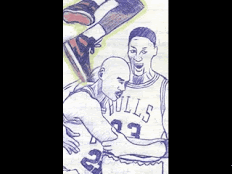Comprising Emmanuel Ledra and Robert Adima, this socially conscious and lyrically wise Lugbara duo is making waves rated one of the best in West Nile, Sudan and the Congo. East Africa is a beckoning frontier and it might not take long before they are recognised more regularly from Bujumbura to Bushenyi, Busia to Bagamoyo; the world at large will also be listening. They do not flaunt silly chains, women nor diamonds and gold nor brag about them like American hiphop rappers but you can measure a lot of worth in Black Harmony's uplifting music. They bring people together. Emma and Bobby hang around their community like any other downtown lad in Arua. Despite being stars, they do not let fame get into their heads. Straight off the streets coming loud and clear with a positive vibration, this dynamic duo are the perfect flag bearers for Lugbara (Ongo) Music.
Emmanuel, the lead singer who does most of the Lugbara raps while his colleague sings in English (with a Reggae flavour as he admitted), first did music in 2003. He formed a club called “Street Culture” but waited two years to produce his first song “Isabella”. Then in 2006, the duo came up with “Munyu Munyu” and “Leta”. “Munyu Munyu” was a very powerful hit (actually used as a ringtone by uganda telecom) that it made a runaway husband return to the four women each of whom he had left with a kid in Uganda.
A female artist named Lady Shadia doing music in Kampala once came to Arua to see how she could take her music to the next level and united with Black Harmony. They produced a quadrolingual hit called “Shadia” or “Baby Gal” which was chosen as a live performance during the 2008 Bell PAM [Pearl of Africa Music] Awards (The collaboration actually scooped the preliminary 2008 Regional Award for West Nile though Dogman won the final award) [but Watch out for 2009]. “Shadia” was the second last song on the “Leta” Album, “Bacaku” which some call “Skulu” is the last one.
The next (and third) album will be called “Ti Icita” meaning “Unity” in Lugbara and includes other languages like Lingala, Swahili, plus English. BH sings about love, community development, parental affection, hard work, procreation and AIDS Prevention.
“The Best Music is Live Music,” Emmanuel confesses and they have performed with Wenge Musica from Congo besides his own project called “Amangonde”. Other moving songs by BH include “Ewa Be Ma Ra”; “Lucky”; “Etoo”; “Adiaa”; “Ti Icita” (Title Track for their 3rd Album); “Jua Kali”; “Anga Azi Avasi”, plus “Silimu”...
This AikoGraphics (+256-781-345712) Cascade blogs about an amazing Cultural Heritage and includes some of the Old and New Things you need to know concerning the Lugbara World - modern, modest, distinct, wild and truly African. The Lugbara are the Largest Tribe in West Nile... MUNGU ni ambo [GOD is great]!
Aiko TV

Awa'difo mini nerisi...
Nda
Lugbara AI

Ojapi: Transcribe, translate, chat (+256-781-345712)...
O'bi Ni Ne Ndeni [Most Viewed]
-
Pronunciation in Lugbara has diphthong clusters and other noteworthy phonetics including the following: aa as in bat , for example embata...
-
My dream is to post a plethora of Lugbara lyrics and this is one of the very first projects I have indulged myself in. J.M. Kennedy is a ver...
-
e’yo [message, issue], o’diru [new], waraga [letter], 'ba [people], tualu [together], buku [book], isu [find], efini [meaning], osita [b...
-
[INSTRUMENTAL:] [CHANDIRU WHISPERS:] Agasi, aga'bo, agasi! Agasi, aga'bo! [VERSE ONE:] Ini ce ra, ale mi ra! Ico aco ku, ah...
-
"Ngoni?" is the standard Lugbara Greeting (meaning ‘How are you?’). "Muke!" is the Response when you are fine. Neverthel...
-
The foreword of this book is written by Jason Avutia (The Chairman of LULA and an Elder), preface is by Lulua Odu 24th August 1996 Arua, Wes...
-
Hiphop and Reggae are very dynamic and Black Harmony (from West Nile) are the supreme flag bearers of these genres in Lugbara-land. I prefer...

